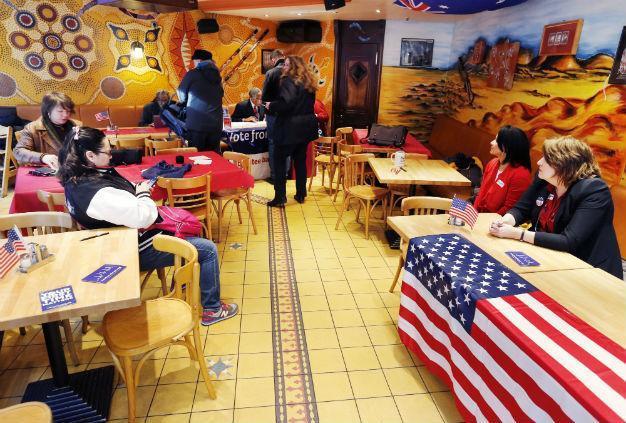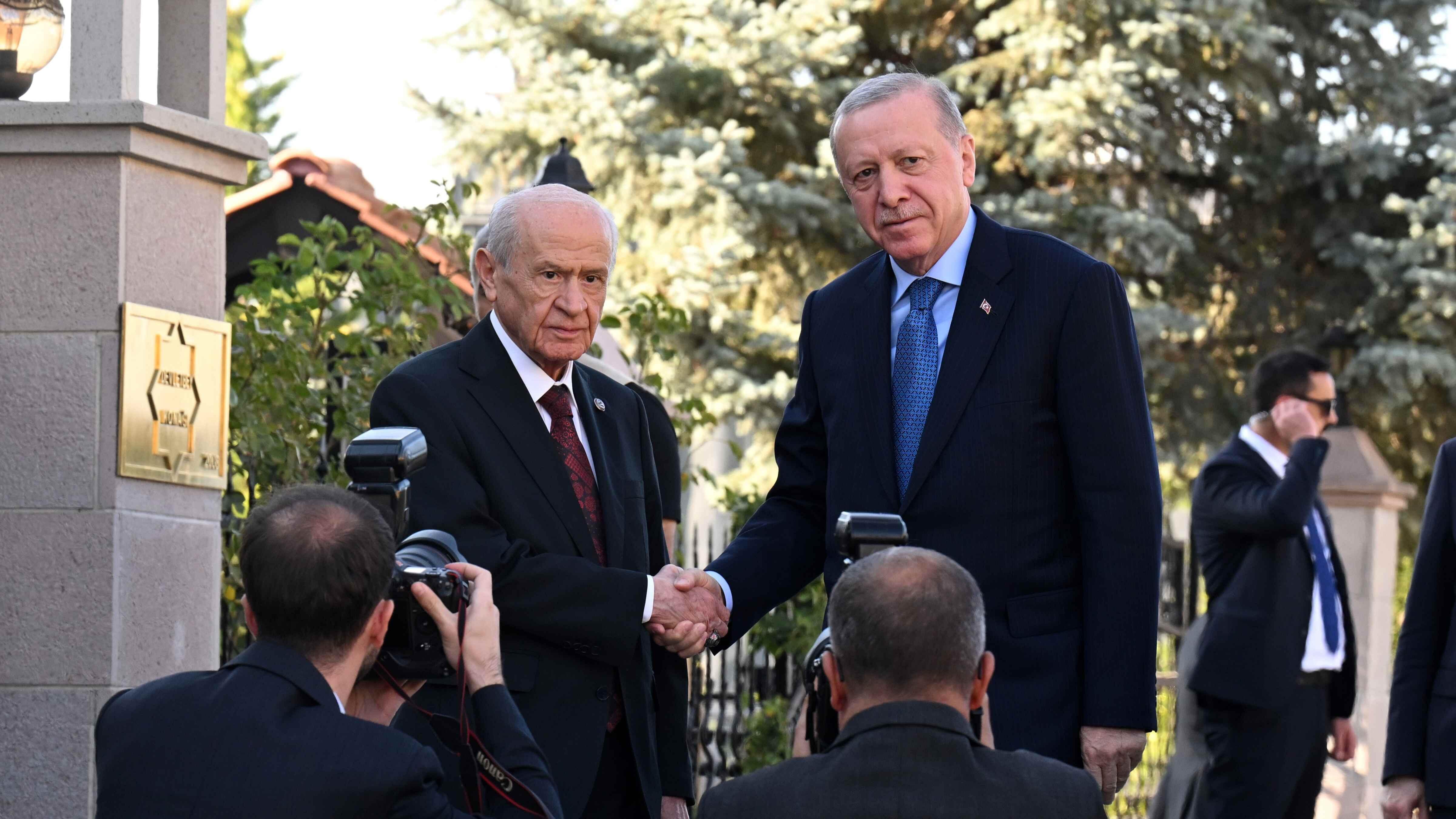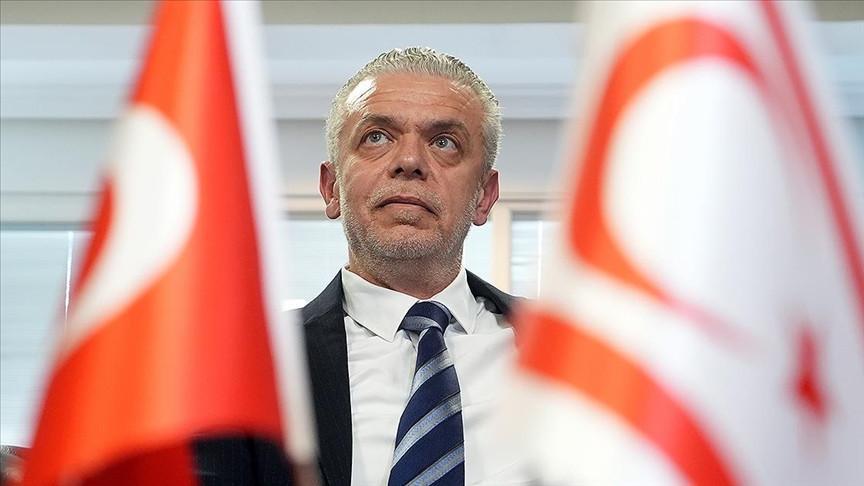Trump, Clinton eye 'Super Tuesday' boost as voting begins
FAIRFAX, United States - Agence France-Presse

AP photo
Americans began voting on March 1 in what is deemed the most pivotal day in the presidential nominating process, with frontrunners Hillary Clinton and Donald Trump hoping to wipe out their rivals.Voters in a dozen states will take part in "Super Tuesday" -- a series of primaries and caucuses in states ranging from Alaska to Virginia, with Virginia the first to open its polling stations at 6:00 am (1100 GMT).
If Democrat Clinton and Republican Trump -- an outspoken billionaire political neophyte who has unexpectedly tapped into a vein of conservative rage at conventional politics -- win big, it could spell doom for their challengers.
Hours before polls opened, the duo made last-ditch appeals to supporters ahead of a day like few others on the calendar leading up to the November election for the White House.
Trump's Republican rivals, Senators Marco Rubio and Ted Cruz, were frantically trying to halt the real estate magnate's march toward nomination, seeking to unite the party against the man they see as a non-conservative political interloper.
Clinton meanwhile was riding high after thrashing rival Bernie Sanders in South Carolina over the weekend, securing an astronomical 86 percent of the African-American vote in her third win in four contests.
Should she win black voters by similar margins in places like Alabama, Georgia and Virginia, she should dominate there to become once again the inevitable candidate.
That was her status at the start of the campaign -- before the rise of Sanders, a self-described democratic socialist.
She was leaving nothing to chance, traveling to multiple states on Monday to urge a strong turnout.
Clinton also took aim at the increasingly hostile campaign rhetoric on the Republican side led by Trump.
"I really regret the language being used by Republicans. Scapegoating people, finger-pointing, blaming. That is not how we should behave toward one another," she told hundreds gathered at a university in Fairfax, Virginia.
"We're going to demonstrate, starting tomorrow on Super Tuesday, there's a different path that Americans ought to take."
Trump's incendiary campaign has infuriated Republican rivals, including mainstream favorite Rubio who has intensified his personal attacks and stressed Trump would have trouble in a general election.
The Florida senator warned supporters in Tennessee that US media and Democratic groups will jump on Trump "like the hounds of hell" if he wins the nomination.
But Trump is clearly in the driver's seat. He is leading in polls in at least eight of the 11 Super Tuesday states.
And a new CNN/ORC poll shows the billionaire expanding his lead nationally, earning a stunning 49 percent of support compared to second place Rubio, at 16 percent.
Cruz of Texas is third, at 15 percent, followed by retired neurosurgeon Ben Carson at 10 percent and Ohio Governor John Kasich at six percent.
Trump punched back against Rubio, calling him "Little Marco," mocking him for sweating on the campaign trail and warning that he could not stand up to strong men like Russian President Vladimir Putin.
Trump's inflammatory rhetoric, in which he has accused Mexico of sending rapists across the border, mocked women and the disabled and urged a ban on Muslims entering the country, would have been the undoing of a normal candidate.
But the 2016 cycle has been anything but normal, with a furious electorate keen to back an outsider who scorns the political establishment.
"I'm representing a lot of anger out there," Trump told CNN.
"We're not angry people, but we're angry at the way this country's being run."
In the latest controversy, Trump came under withering criticism for not immediately disavowing the support of David Duke, who once led the Ku Klux Klan.
Rubio said Trump's failure to promptly repudiate Duke, who has expressed support for Trump, makes him "unelectable."
Some conservatives have said they will shun Trump if he is the nominee.
"This is the party of Abraham Lincoln," said Senator Ben Sasse, accusing Trump of being a non-conservative plotting a "hostile takeover" of the party.
Trump supporters "need to recognize that there are a whole bunch of other people who say, if this becomes the David Duke/Donald Trump party, there are a lot of us who are out," he told MSNBC.
If Trump sweeps the South, where many of the Super Tuesday races are taking place, it could be lights out for his Republican challengers.
Texas is the largest prize on Tuesday, and Cruz is banking on winning his home state. He trails in nearly all other Super Tuesday states.
Almost 600 Republican delegates are up for grabs on March 1, nearly half the 1,237 needed to secure the nomination.
Some 865 Democratic delegates are at stake, 36 percent of those needed to win.
















